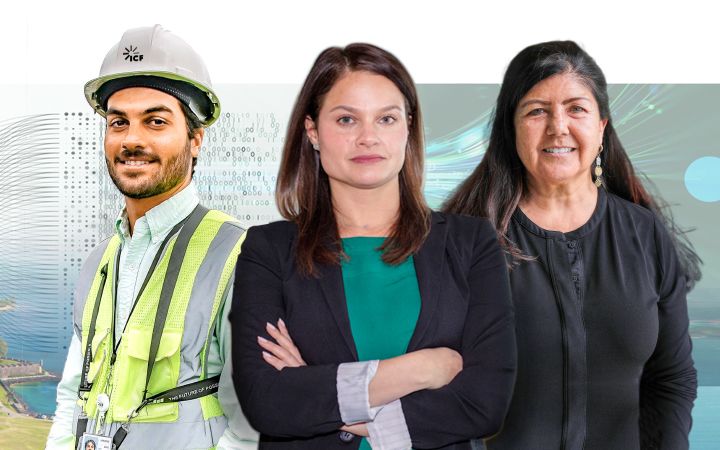
How Trump's tech meeting could transform Washington
Digitally transforming the American public sector requires much more than the right technology.
It's been a big week for digital transformation in the public sector. Acting federal Chief Information Officer Margie Graves reported that the final version of the White House technology modernization report will be released in short order, and Office of Personnel Management (OPM) Director nominee Jeff T.H. Pon said that modernization was his "top priority." The forward momentum inspired us to share one of our favorite articles from ICF Senior Vice President Kris Tremaine, who recently wrote about the ingredients for a successful modernization effort. The article originally appeared in Fortune in June 2017.
The White House American Technology Council is convening its first meeting with technology executives this week, which will include Apple CEO Tim Cook, Microsoft CEO Satya Nadella, and Amazon CEO Jeff Bezos. The goal is to discuss actionable ways to digitally transform the American public sector. On paper, the meeting promises to frame the transformation efforts led by the Trump administration, focusing on procurement, performance, and implementation. But if past attempts to bring tech and government together are any indication, actually agreeing on public-private strategies, timelines, and price tags will prove complicated.
The biggest challenge facing council leaders Jared Kushner, President Trump’s son-in-law and one of his top counselors, and Chris Liddell, a top White House advisor and former chief financial officer at Microsoft, as well as the business leaders around the table, is how to invigorate the cultural norms of a government that already spends over $80 billion on information technology but still struggles with delivering widespread innovation, compelling digital experiences, and large-scale cost savings.
The council needs to tackle two primary issues in order to kick-start the digitization process. First, it must make clear that federal agencies’ technology—the hardware, software, and services—is only about 30% of the solution. The council members need to shift the public sector’s focus from IT eye candy—such as Internet of Things, Big Data, and artificial intelligence—to more substantive changes like streamlining procurement processes governing how agencies purchase new technology, requiring employees to go paperless, and relaxing barriers to entry for emerging technology.
A complete transformation will require all employees—not just the IT team—to understand how digitization is relevant to the work they do on a daily basis. Government employees will need targeted training in skills such as app development, data security, and coding, which will enable the delivery of digital services that efficiently address citizens’ needs.
Second, the council needs to consider the importance of American citizens’ opinions of public services. Many corporate members of the American Technology Council hold customer experience and constant feedback as core operating principles. Agencies looking to implement effective customer feedback loops remain stymied by regulation and legislation barring real-time and long-term customer experience research. In many cases, agencies miss out on knowing who is visiting their websites or downloading their apps, and whether that experience is any good. After all, people don’t just want the option of using technology to interact with the public sector; they expect all interactions to have the same accessibility, speed, and intuitive user experience that private sector sites and apps provide.
The council should direct agencies to conduct research to better understand who is using their digital channels. To do this effectively, agencies need the Office of Management and Budget to finance their efforts and a release from regulations governing feedback processes and accountability frameworks to make such research meaningful. Passing the Federal Agency Customer Experience Act—a bill that opens the door for agencies to collect voluntary feedback—would be an excellent place to start.
While the American Technology Council is unlikely to reach groundbreaking results on any single policy issue during its first meeting, it can begin with these simple steps. The leaders should focus on the social perceptions around processes they want to modernize—not just the technology—when considering their short-term plan. Then they should focus on building a sustainable culture of innovation and customer support that drives long-term improvement in digital public services.
